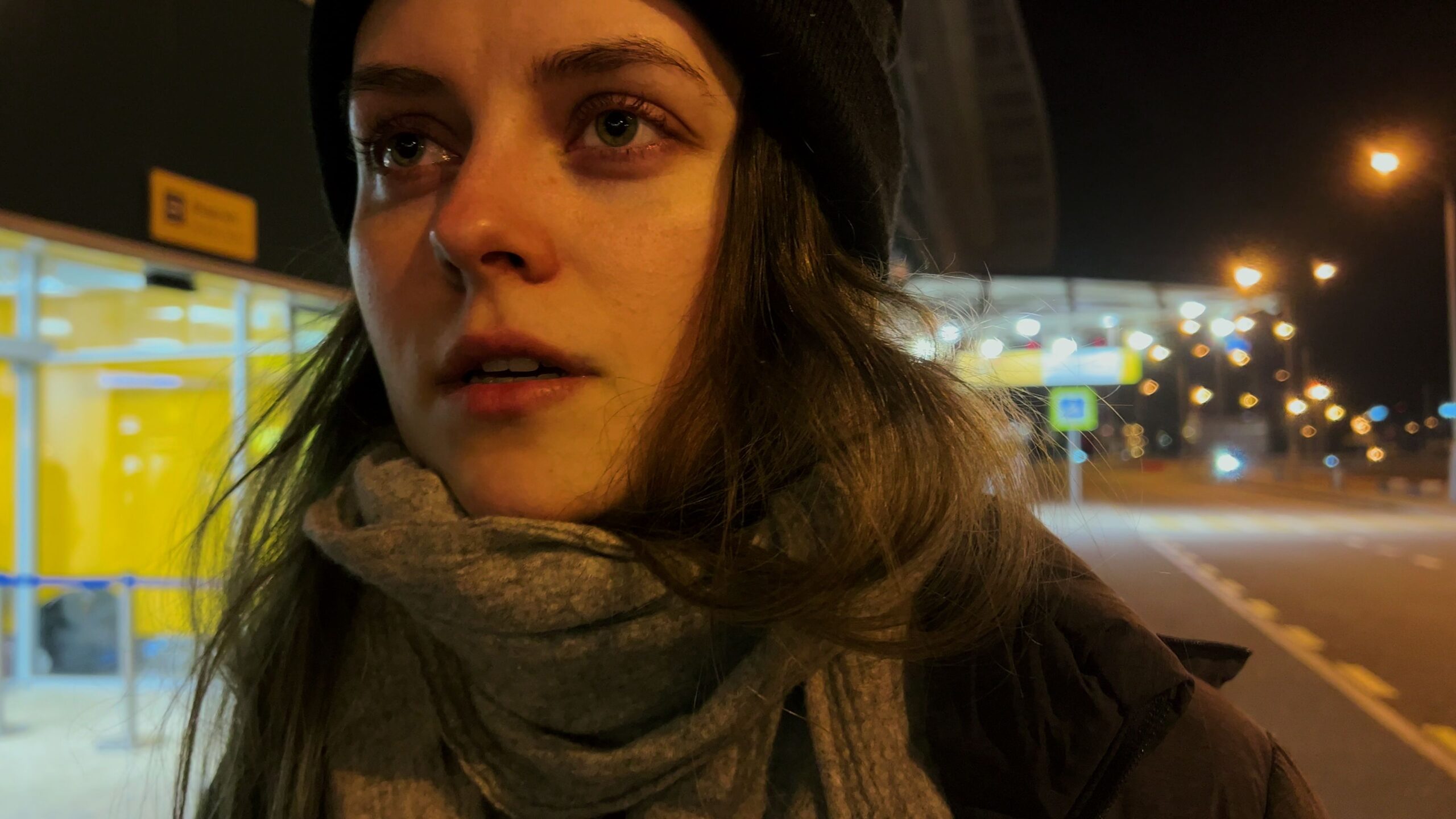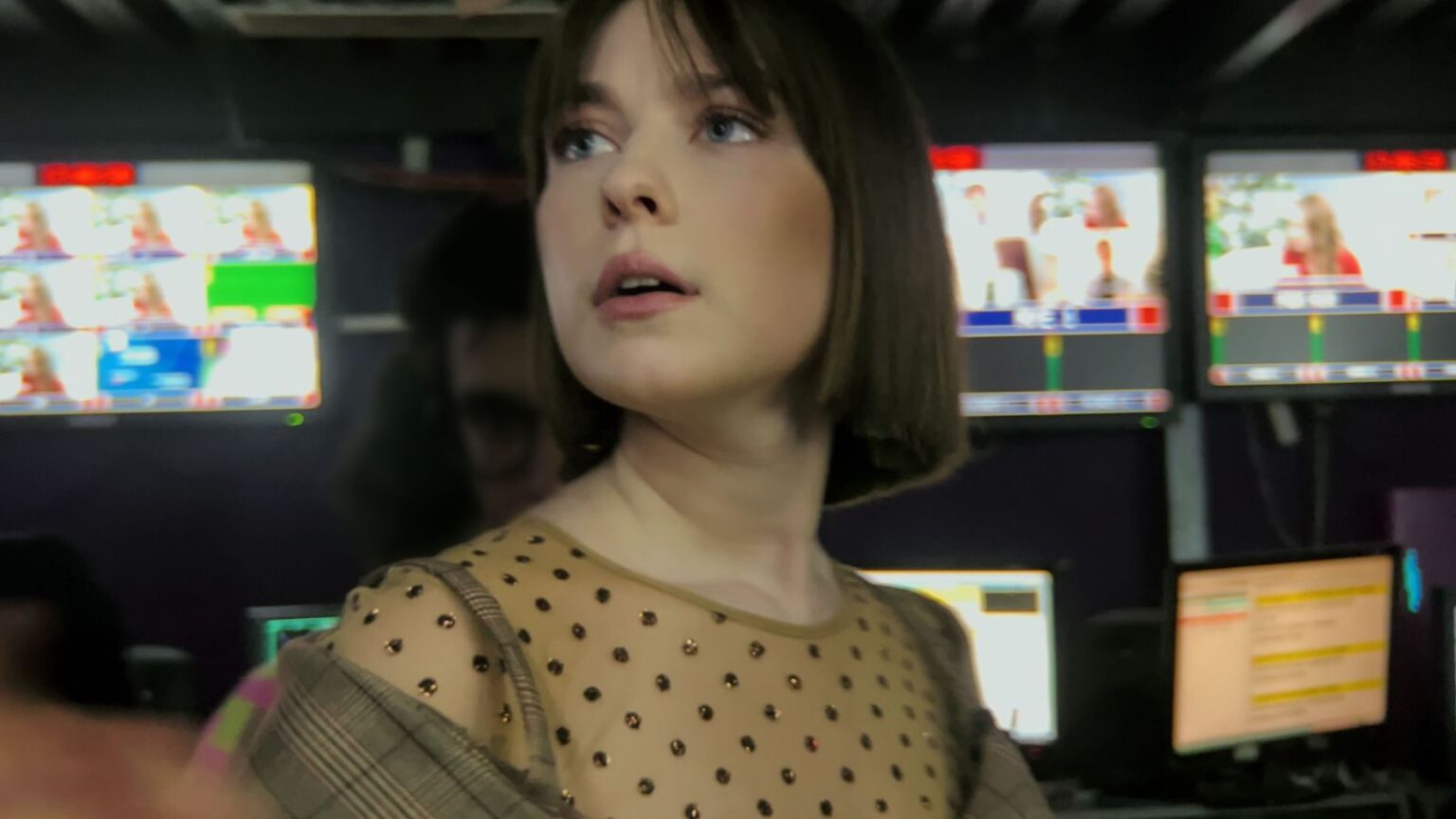“The world you’re about to see no longer exists”, quotes director Julia Loktev in her film’s, “My Undesirable Friends: Part 1 – Last Air in Moscow” (having its world premiere on the Main Slate of this year’s New York Film Festival), narration, already cementing an urgency and striking necessity to tell this story now before it is too late. Even though this quote has a massive importance in Loktev’s on-the-ground exploration of independent media journalism in Putin’s Russia, where there is an authoritarian crackdown on any voices criticizing the government, I find it prevalent in all of her filmography. Since Loktev makes films in such a sparse time frame, her features having many years in between each other, she has captured the many societal and governmental shifts occurring during her filmic career.
“The World You’re About to See Now No Longer Exists”
These versions of the world are no longer when you glance at one of her films. And you feel it immediately, whether it is a misstep on an on-foot journey in “The Loneliest Planet” –an underseen picture you should check out–or a decision made in “Day Night Day Night”. Loktev likes to explore the settings and places she sets her films in. She is like an adventurer who wants to show her surroundings in the crudest way possible. With that quote in mind that offhandedly is passed around through her filmography, it adds another layer to her coveted cinematic lining. In contrast to her two features above, “My Undesirable Friends: Part 1” has a hurriedness attached that uses the introductory quote as a message for the viewer of how vital the role and work of independent journalists are in these times of constant change and governmental authoritarian restraints.
As I mentioned, Loktev opens with the quote: “The world you’re about to see now no longer exists”. None of the subjects or crew involved in the documentary knew that what would begin as an exploration of journalist crackdowns would later be tied to war, as Russia invaded Ukraine in the coming months. They couldn’t have known what would occur, the tragedies that would develop in this still ongoing war. Split into five chapters, “My Undesirable Friends: Part 1” begins in Moscow in the fall of 2021, where Loktev, who was born in the Soviet Union, has returned to document the lives of her journalist friends and the struggles they force daily by begin constantly monitored and labeled as “foreign agents” by the government amidst Putin’s crackdown on their work and reports.
One of the first people Loktev meets is Anna Nemzer, a finalist for the Belkin Prize and an editor on TVRain, the last independent Russian-language television channel whose slogan is “Optimistic Channel.” Nemzer is the one who introduces Loktev to this shifting world of independent journalism. We learn about the ins and outs of TVRain, how they are represented in the media (and how they represent themselves to the suppressive government with angst and fury), and the counter-cultural movement they participate in. She is an exciting subject that becomes even more fascinating as we spend more time with her. Tireless and persistent, Nemzer shows how unjust the restrictions the government puts on not only reporters and talk show hosts who want to speak against the law but also civilians who do public demonstrations.

Julia Loktev’s Up-and-Close Framing
They “cannot” act upon these restrictions, which makes Nemzer and the TVRain crew even more open to critique those infringements. It could be about artists’ expressions or civilians’ identities. Nevertheless, Nemzer is ready to throw hard-hitting jabs at the authoritarian behind the inequalities. All of this, and more, makes Nemzer such an intriguing person to follow, one that Loktev wants to study and learn more about. And, with an intimate lens, via wide angle lenses that get close to these people being portrayed, you get to explore their psyche, learn about their past, and the removal of their childhood in exchange for fighting for a better future. These journalists are relatively young; most working in TVRain are in their twenties. With the camera up close and personal, you sense that they were not able to live an everyday life because the government kept being more restrictive and oppressive.
These are the voices of the voiceless–the ones who will die trying to re-establish the world. Loktev frames these scenarios even more closely than Frederick Wiseman’s fly-on-the-wall procedure. You are placed right beside them, listening (and nearly participating) in the conversations and preparations these journalists do. There’s a reason why “My Undesirable Friends” is so near the action. Loktev revealed that initially, she hoped to have a cameraman handle the footage. After a meeting, someone asked Lokted if it could only be her. Nemzer and company were more comfortable in her presence and without another person next to her. So, Loktev put her phone up and never stopped recording, painting their portraits with more than just respect and admiration. The first half of the documentary is about immersing themselves into the independent journalism world near the invasion of Ukraine as they escape the country.
In the first half, I felt the documentary scattered. But having listened to those statements in the Q&A, it changed my opinion. Loktev needed to find out how she would visually represent every scenario on the spot. Sure, it is still demanding, being five hours long. Yet, this composition adds to the film’s urgency and ticking time-bomb tension as, as the doc initially states, the world you saw then is no more. Each chapter that Loktev frames is robust. It grows in urgency as it runs its course. Her lens stays focused. It gets shakier as the tension increases with the uncertainty of every situation, with us watching and already knowing some of the outcomes. Yet, everyone remains controlled and persistent in communicating their message to the masses.
“My Undesirable Friends: Part 1 – Last Air in Moscow” had its world premiere in the Main Slate of this year’s New York Film Festival. Follow us for more coverage.

